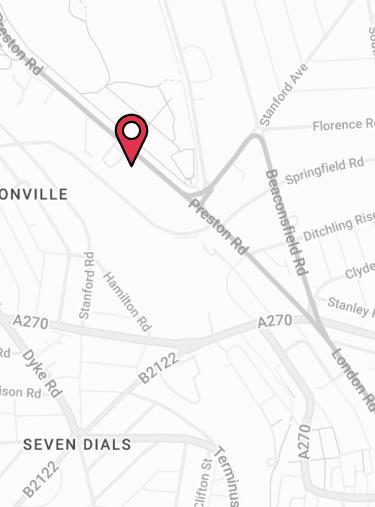SME business owners often ask their accountants about both Relevant Life Insurance and Keyman Insurance. However, there’s sometimes a bit of confusion between the two, especially relating to the purpose and taxation of each policy.
This 10 minute read should equip accountants with all the knowledge they need to have at hand next time a client asks.
What is Relevant Life Insurance?
Relevant Life Insurance is a tax-efficient Life Insurance. While a policy covers an individual, a company pays the premiums. It’s therefore very similar to the Death in Service Insurance businesses might offer their staff, just for one person.
Despite a company paying the premiums, the payout is for the insured individual’s family or a charity, not the business.
How Does HMRC Treat Relevant Life Insurance?
Relevant Life Cover is available wherever there is an employer / employee relationship. Your clients can benefit from it providing there’s some kind of company vehicle to pay for the policy and as long as that company has at least one employee.
HMRC considers any benefit a Relevant Life Insurance policy pays out as:
- Free of income tax, National Insurance contributions and capital gains tax
- Not counting towards their lifetime pension allowance (because it’s a ‘non-registered’ scheme)
- Not included included in their estate for inheritance tax purposes as the benefit is held in trust, which is the legal owner of the policy.
What’s more, the premiums are:
- An allowable expense for corporation tax purposes
- Not a P11D / benefit in kind
- Free from National Insurance contributions for either employees or employers.
Should the insured individual die, the policy pays out into a specially-drafted trust. This means that the payout avoids probate and is inheritance tax free.
How Your Clients Can Save with Relevant Life Insurance
In the table below, we’ve laid out a comparison between personal Life Insurance and Relevant Life Cover.
Imagine a policy which, on a personal basis, costs £100 a month. As your client has already paid taxes and National Insurance contributions on the funds they’re using to pay the premiums, a client who’s higher-rate taxpayer has to earn £196.21 within the business before they can pay a £100 personal Life Insurance premium.
However, your client pays premiums for Relevant Life Insurance from company funds before HMRC deducts taxes and National Insurance contributions. That means a Relevant Life Insurance policy could save them as much as 49% over a personal plan.
Why Relevant Life Insurance?
There are three common scenarios in which your clients might benefit from Relevant Life Cover:
- Very small businesses, where there aren’t usually enough staff to write a Death in Service scheme.
- Limited companies where the director / owner is the sole employee
- Providing cover for high-earning individuals seeking to avoid a Death in Service payout becoming part of their lifetime allowance for pension purposes.
As an accountant, one of your many jobs for clients with their own limited companies is to help save them tax.
If they’re considering paying for Life Insurance from net earnings, it’s worth suggesting Relevant Life Insurance instead because of its many tax efficiencies over personal cover.
Compare Relevant Life Insurance Quotes
It’s worth getting your clients to pop in their details into the Drewberry Relevant Life Insurance Calculator. It lets them see how the tax savings might apply to them and get instant online quotes.
SPECIALIST TIP
Our Relevant Life Insurance quote engine is unique. It’s the only one available to compare quotes for Relevant Life Insurance from across the entire UK market so your clients can be sure they’re getting the best deal.
What is Keyman Insurance?
Keyman Insurance — also known as Key Person Insurance — also insures an individual’s life. However, the recipient of the payout is a company (for the purposes of Keyman Insurance, that is a public limited company, a limited liability partnership or a partnership).
How Does HMRC Tax Keyman Insurance?
HMRC’s tax treatment of Keyman Insurance depends on the purpose of the policy and the recipient of the benefits. The rules are complicated and may appear quite arbitrary as tax treatment can differ depending on how the company uses the payout.
The most common tax treatment with Keyman Insurance is that the premiums do not qualify for corporation tax relief and HMRC considers any payout from the policy taxable as a trading receipt.
There are two exceptions to this:
- Where your client takes out a policy on the life of an employee who’s key to profitability
In this situation — providing the employee isn’t a director with a significant controlling interest — the premiums qualify for corporation tax relief.
- Where the purpose of the policy is to cover a business loan
Here, HMRC considers any payout from the policy as capital receipt rather than a trading receipt.
IMPORTANT NOTICE
These rules are based on our understanding of HMRC’s rules surrounding Keyman Insurance. Tax treatment depends on your clients’ individual circumstances and is subject to change. While this covers the general consensus on HMRC’s taxation of Keyman Insurance, the final say is with your client’s local inspectorate of taxes.
Why Keyman Insurance?
Keyman Insurance protects business continuity. In the event of the death or earlier critical illness of the policyholder, the company receives the proceeds of the policy. Ut can use this for a variety purposes, such as:
- Replacing lost of profits
- Paying for the recruitment and training of a replacement
- Repaying outstanding loans
- Making up for loss of important personal or business contacts
- Making up for loss of confidence from suppliers and customers
- Compensating for difficulties in raising finance for new developments
- Loss of detailed knowledge of the business’ processes and systems
- Winding up a company in an orderly fashion.
If desired, clients can also add Critical Illness Insurance to their policy, which provides a payout should the key individual become critically ill.
Keyman Insurance vs Relevant Life Cover at a Glance
Compare Instant Online Quotes for Keyman Insurance & Relevant Life Cover
Drewberry helps hundreds of small businesses from across the UK arrange cover such as Relevant Life Cover and Key Person Insurance. We also provide advice on pensions and investments.
Why Speak to Us?
When it comes to protecting yourself and your finances, you deserve first-class service. Here’s why you should talk to us:
- There’s no fee for our service
- We’re an award-winning independent insurance broker, working with the leading UK insurers
- You’ll speak to a dedicated specialist from start to finish
- 4067 and growing independent client reviews rating us at 4.92 / 5
- Claims support when you need it most
- We’re authorised and regulated by the Financial Conduct Authority. Find us on the financial services register.
Partner With Drewberry
We thought the traditional way of introducing a client was a little antiquated and lacked transparency. Sending your partner an email and hoping for the best just didn’t wash with us!
We like to do things properly and we wanted to make this experience better.
That’s why we built our partnership portal. This lets you log in to your portal and have complete information on the clients you have introduced and know they are being dealt with in a professional manner.






